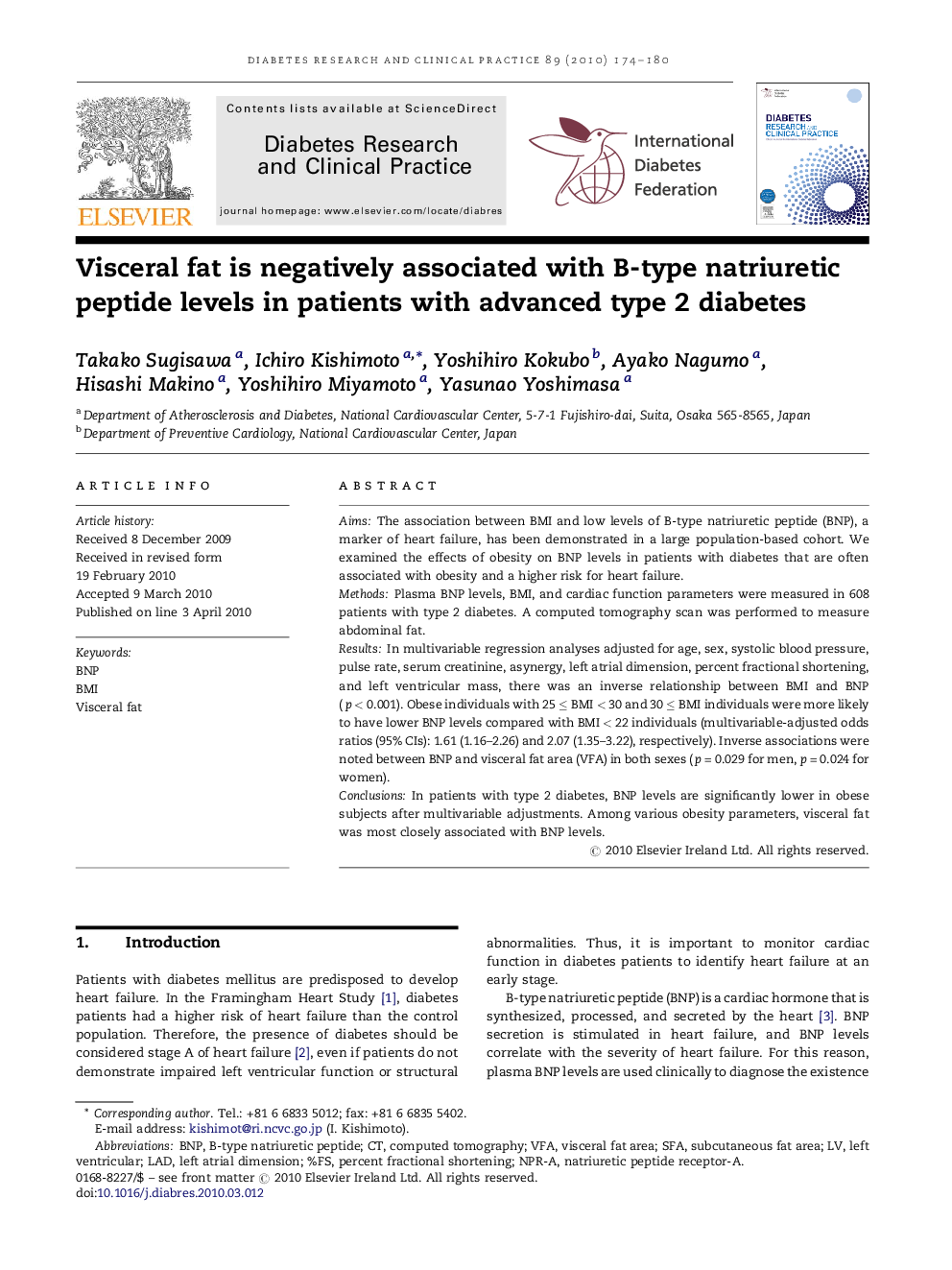| Article ID | Journal | Published Year | Pages | File Type |
|---|---|---|---|---|
| 2797509 | Diabetes Research and Clinical Practice | 2010 | 7 Pages |
AimsThe association between BMI and low levels of B-type natriuretic peptide (BNP), a marker of heart failure, has been demonstrated in a large population-based cohort. We examined the effects of obesity on BNP levels in patients with diabetes that are often associated with obesity and a higher risk for heart failure.MethodsPlasma BNP levels, BMI, and cardiac function parameters were measured in 608 patients with type 2 diabetes. A computed tomography scan was performed to measure abdominal fat.ResultsIn multivariable regression analyses adjusted for age, sex, systolic blood pressure, pulse rate, serum creatinine, asynergy, left atrial dimension, percent fractional shortening, and left ventricular mass, there was an inverse relationship between BMI and BNP (p < 0.001). Obese individuals with 25 ≤ BMI < 30 and 30 ≤ BMI individuals were more likely to have lower BNP levels compared with BMI < 22 individuals (multivariable-adjusted odds ratios (95% CIs): 1.61 (1.16–2.26) and 2.07 (1.35–3.22), respectively). Inverse associations were noted between BNP and visceral fat area (VFA) in both sexes (p = 0.029 for men, p = 0.024 for women).ConclusionsIn patients with type 2 diabetes, BNP levels are significantly lower in obese subjects after multivariable adjustments. Among various obesity parameters, visceral fat was most closely associated with BNP levels.
